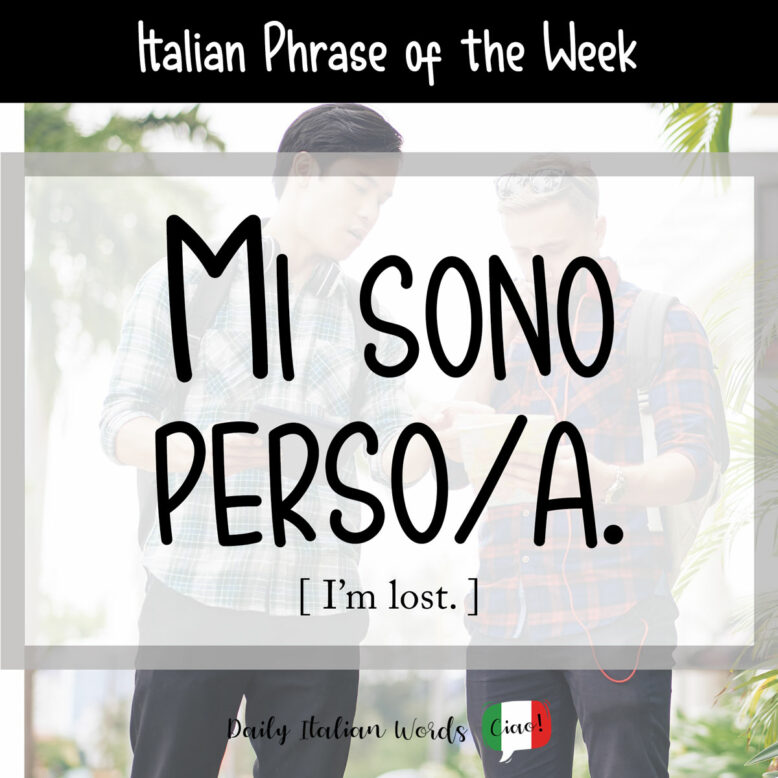If you are travelling around Italy and somehow manage to lose your way despite having invested in a reliable map and travel book, fear not – you can always rely on the tried and tested method of asking the locals for help! 😀

To inform someone that you are lost in Italian, you can use the simple phrase Mi sono perso (if you are a man) or Mi sono persa (if you are a woman). Both literally translate as I have lost myself* but the meaning in English is I am lost / I have lost my way.
The phrase is made up of the following components:
Mi (reflexive pronoun ‘myself’) + sono (first person singular present of essere ‘to be’) + perso/a (past participle of perdere ‘to lose / miss’)
I am lost. / I have lost my way.

When grabbing someone’s attention on the street, it is common to begin with a polite expression such as Mi scusi… (Excuse me…)
Mi scusi, mi sono perso. Sa mica dove si trova la stazione?
Excuse me, I’m lost. Do you know where the station is by any chance?
Adding extra emphasis to this phrase is easy. All you have to do is modify it with adverbs such as completamente, totalmente, proprio or del tutto, all of which mean completely in this context.
- Mi sono perso completamente.
- Mi sono perso totalmente.
- Mi sono proprio perso.
- Mi sono perso del tutto.
If you are travelling with another person or a group of people, it is necessary to use the corresponding plural forms which are:
- Mi sono perso. > Ci siamo persi. (a group of two or more men, or a mixed group speaking)
- Mi sono persa. > Ci siamo perse. (a group of two or more women speaking)

Usefully this phrase can also refer to a past event, in which case it would translate as I got lost.
L’anno scorso mi ero perso durante il mio viaggio a Roma.
I got lost during my trip to Rome last year.

As in English, this phrase can also be used in a metaphorical sense to describe the state of being completely absorbed in something, either willingly or not. For example, perdersi in un altro mondo means to get lost in another world.
Then we have the idiom perdersi in un bicchiere d’acqua (lit. to get lost in a glass of water) which means to worry about a trivial matter or to get confused or stuck in the face of a very small difficulty.
Paolo si perde in un bicchier d’acqua.
Paolo worries about trivial things.
Heather Broster is a graduate with honours in linguistics from the University of Western Ontario. She is an aspiring polyglot, proficient in English and Italian, as well as Japanese, Welsh, and French to varying degrees of fluency. Originally from Toronto, Heather has resided in various countries, notably Italy for a period of six years. Her primary focus lies in the fields of language acquisition, education, and bilingual instruction.


